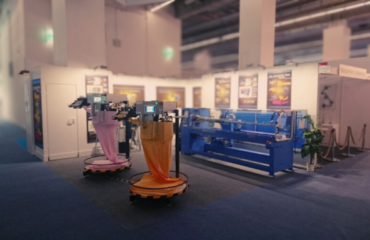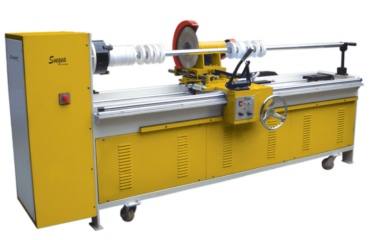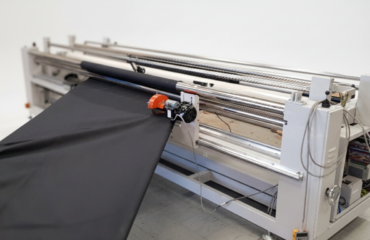In recent years, the textile and clothing sector has undergone a significant transformation. The shift towards sustainability is driven by increasing awareness of environmental issues and the urgent need for change. This article explores the fascinating world of sustainable textiles, delving into eco-friendly materials, circular fashion, responsible manufacturing practices, and leading brands in the sustainable fashion movement.
Eco-Friendly Materials
The cornerstone of sustainable textiles lies in the use of eco-friendly materials. These materials not only reduce environmental impact but also offer innovative solutions for a greener future.
Organic Cotton
Organic cotton is grown without the use of synthetic pesticides or fertilizers. This method reduces soil and water contamination, promoting healthier ecosystems. Moreover, organic cotton farming practices enhance soil fertility and reduce water usage, making it a sustainable choice for textile production.
Tencel (Lyocell)
Tencel, also known as Lyocell, is a fiber derived from sustainably managed eucalyptus trees. The production process of Tencel is notable for its low environmental impact, including reduced water usage and minimal chemical input. Known for its softness and breathability, Tencel is an excellent choice for eco-conscious consumers.
Hemp
Hemp is a versatile plant that requires minimal water and no synthetic pesticides to grow. Its fibers are strong and durable, making hemp an ideal material for various textile applications. Additionally, hemp cultivation improves soil health by preventing soil erosion and enhancing soil structure.
Recycled Polyester
Recycled polyester is made from post-consumer plastic bottles. This process reduces plastic waste and conserves energy compared to producing virgin polyester. Recycled polyester offers a sustainable alternative to traditional synthetic fibers, supporting the reduction of plastic pollution.
Circular Fashion
Circular fashion is a concept that aims to create a closed-loop system in the textile industry. This approach focuses on designing products for longevity, recyclability, and minimal waste.
Closed-Loop Systems
Brands are increasingly adopting closed-loop systems, where products are designed to be easily recycled into new textiles. This approach reduces the need for virgin materials and minimizes waste. By rethinking product life cycles, companies can significantly lessen their environmental footprint.
Take-Back Programs
Many companies now offer take-back programs, encouraging customers to return old garments for recycling or repurposing. These programs extend the life of clothing items and reduce textile waste. Consumers are incentivized to participate through discounts or store credits, promoting a culture of sustainability.
Upcycling
Upcycling involves transforming discarded textiles into new, fashionable pieces. This creative approach reduces waste and adds unique value to otherwise unused materials. Designers and brands are increasingly embracing upcycling to create one-of-a-kind, eco-friendly products.
Responsible Manufacturing Practices
Sustainable textiles extend beyond materials and recycling; they encompass ethical and responsible manufacturing practices that prioritize the well-being of workers and the environment.
Fair Wages and Labor Conditions
Brands committed to sustainability ensure fair wages and safe working conditions for their employees. Ethical treatment of workers is a fundamental aspect of responsible manufacturing, promoting social justice within the industry.
Reducing Water Usage
Innovations in textile production have led to significant reductions in water usage. Techniques such as waterless dyeing and efficient washing processes help conserve this precious resource. By adopting these methods, brands can decrease their environmental impact and support sustainable water management.
Low-Impact Dyeing
The use of natural dyes or low-impact synthetic dyes is gaining traction as a sustainable alternative to traditional dyeing processes. These dyes reduce chemical pollution and lower the environmental footprint of textile production. Brands that prioritize low-impact dyeing contribute to cleaner waterways and healthier ecosystems.
Traceability and Transparency
Transparency in the supply chain allows consumers to make informed choices about the products they purchase. Brands that disclose detailed information about their sourcing, manufacturing processes, and labor practices build customer trust. Traceability ensures accountability and promotes ethical practices within the industry.
Leading Sustainable Brands
Several brands have emerged as leaders in the sustainable fashion movement. These companies set an example by prioritizing environmental and social responsibility.
1. Patagonia
Patagonia is renowned for its commitment to sustainability. The company uses recycled materials, supports fair labor practices, and promotes environmental activism. Patagonia’s dedication to transparency and ethical practices has made it a pioneer in sustainable fashion.
2. Eileen Fisher
Eileen Fisher emphasizes timeless designs, organic materials, and circular practices. The brand’s take-back program encourages customers to return old garments for recycling, promoting a circular economy. Eileen Fisher’s holistic approach to sustainability encompasses both environmental and social aspects.
3. Stella McCartney
Stella McCartney is a trailblazer in luxury sustainable fashion. The brand uses innovative materials such as vegan leather and recycled fabrics, prioritizing animal welfare and environmental impact. Stella McCartney’s designs showcase that sustainability and high fashion can coexist harmoniously.
4. Reformation
Reformation creates stylish clothing from eco-friendly fabrics. The brand’s commitment to sustainability is evident in its use of recycled materials, efficient production processes, and transparent supply chain. Reformation’s trendy designs appeal to fashion-forward consumers who prioritize sustainability.
5. Veja
Veja produces sneakers using sustainable materials such as organic cotton, wild rubber, and recycled plastic. The brand’s dedication to fair trade practices and environmental responsibility has earned it a loyal following. Veja’s innovative approach to sneaker production sets a high standard for sustainable footwear.
Not Just a Trend
Sustainable fashion is not just a trend; it is a crucial step towards a greener and more ethical industry. By embracing eco-friendly materials, circular fashion practices, and responsible manufacturing, the textile sector can significantly reduce its environmental impact. Leading brands like Patagonia, Eileen Fisher, Stella McCartney, Reformation, and Veja demonstrate that sustainability and style can go hand in hand.
Additionally, companies like Svegea of Sweden are making strides in sustainability with innovative textile machinery that supports efficient and eco-friendly production. Supporting these brands and making conscious purchasing decisions contribute to positive change in the industry.
The future of fashion lies in sustainability, and every step towards a greener wardrobe counts.






